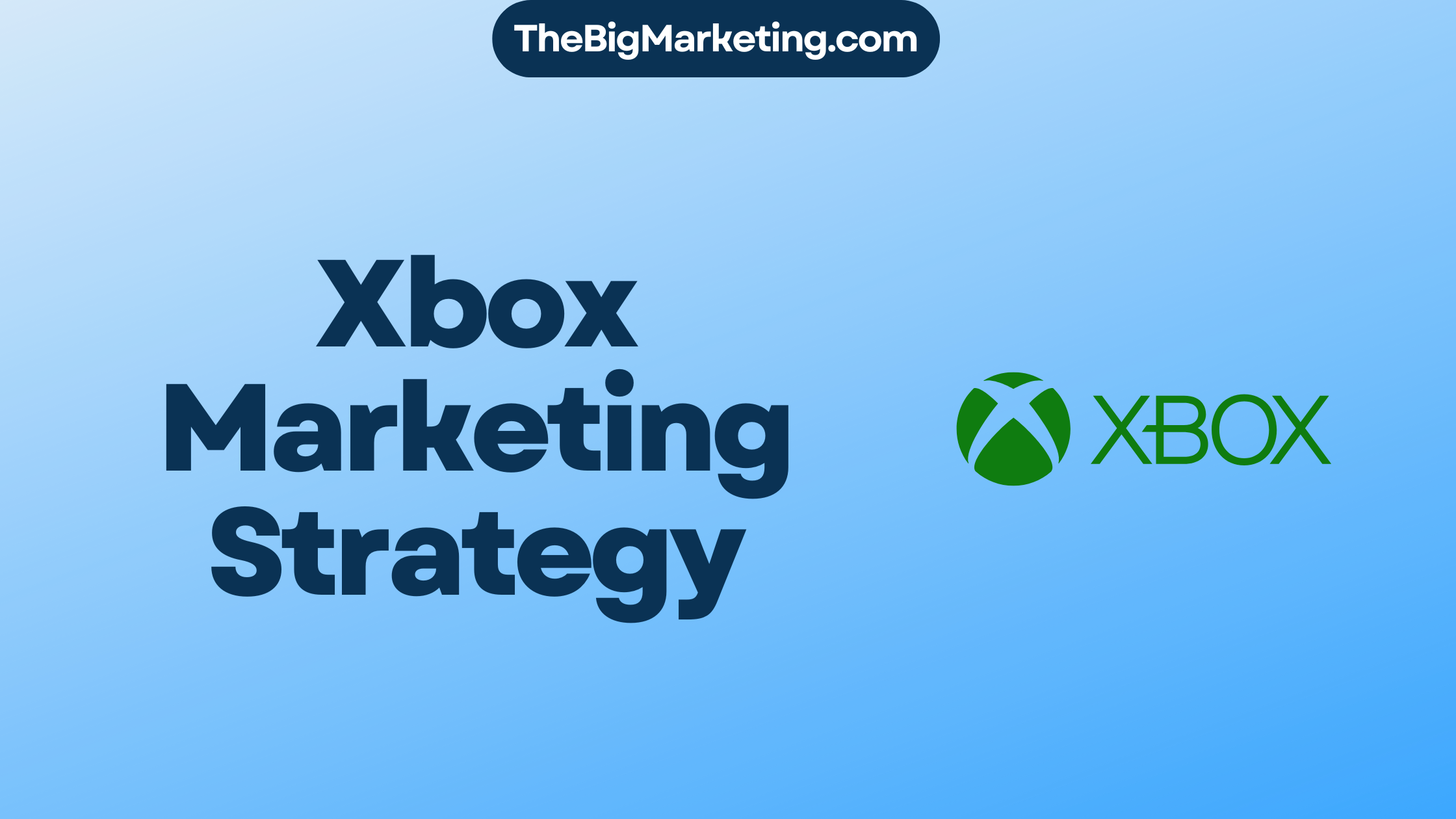Are you looking to take your marketing strategy to the next level? Consider on-demand marketing, a targeted approach that delivers personalized experiences to individual customers. In this article, we will explore the concept of on-demand marketing, its potential benefits, and how businesses can implement this strategy effectively.
Key Takeaways:
- On-demand marketing is a targeted approach that delivers personalized experiences to individual customers.
- This strategy involves observing customer behavior and delivering tailored marketing solutions to meet their needs.
- On-demand marketing has the potential to revolutionize the way brands interact with customers and can be implemented by businesses of all sizes.
- Implementing on-demand marketing may require resources and effort, but the potential rewards are significant.
- By embracing on-demand marketing, businesses can elevate their brand and stand out in a competitive market.
The Potential of On-Demand Marketing
On-demand marketing has the potential to revolutionize the way businesses address the increasing demands of consumers by providing personalized experiences. By leveraging consumer data and cross-disciplinary knowledge, marketers can anticipate customer needs and create seamless purchasing experiences. This targeted marketing approach aims to make all interactions with a brand immediate, relevant, valuable, and easy, catering to the specific demands of consumers.
The widespread use of mobile phones and social media has opened up new opportunities to collect vast amounts of customer data and collaborate with other companies. With access to a wealth of customer data, businesses can now tailor their marketing strategies to meet consumer demands more effectively. By analyzing customer behavior and preferences, businesses can ensure that their marketing efforts are targeted and relevant, resulting in increased customer engagement and satisfaction.
Collaboration between companies is also vital in the realm of on-demand marketing. By partnering with other organizations, businesses can pool their resources, expertise, and customer data to create unique and impactful marketing campaigns. The synergy generated through collaboration can help businesses deliver personalized experiences that exceed customer expectations, leading to long-term customer loyalty and advocacy.
The Role of Customer Data
In the era of on-demand marketing, customer data plays a crucial role in understanding consumer behavior and preferences. By harnessing the power of data analytics, businesses can gain valuable insights into customer needs and preferences, allowing them to tailor their marketing campaigns accordingly. This targeted approach ensures that marketing efforts are focused on delivering personalized experiences that resonate with individual consumers.
The collection and analysis of customer data also enable businesses to identify trends and patterns, which can inform marketing strategies and tactics. For example, if customer data reveals that a significant portion of the target audience prefers engaging with brands through social media platforms, businesses can allocate resources to create targeted social media advertising campaigns. By utilizing customer data effectively, businesses can optimize their marketing efforts and stay ahead of the competition.
In summary, on-demand marketing has the potential to address consumer demands effectively by providing personalized experiences. Leveraging customer data and collaboration between companies, businesses can create targeted marketing strategies that meet the needs and preferences of individual consumers. By embracing the principles of on-demand marketing, businesses can enhance customer satisfaction, drive engagement, and ultimately achieve business growth in today’s rapidly evolving marketplace.
What Can We Do Now?
Implementing on-demand marketing may seem challenging for small businesses, but there are practical steps that can be taken to embrace its principles and provide exceptional customer experiences. By shifting towards a customer-focused approach, small businesses can start tailoring their marketing strategies to meet individual customer needs and preferences.
While full implementation of on-demand marketing may require significant resources and technological support, even small businesses can begin implementing the ideas behind it. By gradually working towards providing personalized experiences, businesses can establish themselves as customer-centric brands and stand out in the market.
Embracing a Customer-Focused Mindset
At the core of on-demand marketing is the concept of being customer-focused. This means understanding customer needs, preferences, and pain points, and incorporating them into marketing strategies. Small businesses can start by gathering data on their target audience and creating buyer personas to better understand their customers. This information can then be used to customize marketing messages, product offerings, and customer interactions.
Tailoring Marketing Strategies for Individual Customer Needs
Once small businesses have a clear understanding of their target audience, they can begin tailoring their marketing strategies to meet individual customer needs. This may involve personalized email campaigns, targeted social media advertising, or customized product recommendations based on customer preferences. By demonstrating a deep understanding of their customers’ unique requirements, small businesses can create highly relevant and engaging marketing experiences.
Gradually Implementing On-Demand Marketing Principles
While the full implementation of on-demand marketing may not be feasible for small businesses in the short term, they can start incorporating its principles into their existing marketing efforts. This could involve using data analytics to gain insights into customer behavior, optimizing customer touchpoints for a seamless experience, and adopting automation tools to streamline operations. By gradually integrating on-demand marketing principles, small businesses can enhance customer experiences and drive customer satisfaction and loyalty.
Implementing on-demand marketing strategies may take time and effort, but the benefits for small businesses are significant. By embracing a customer-focused mindset and gradually implementing on-demand marketing principles, businesses can create personalized experiences that resonate with their customers. This customer-centric approach will not only lead to increased customer satisfaction but also establish long-term relationships that drive business growth.
The First Principle: Immediate
The first principle of on-demand marketing is that customer interactions must be immediate. In today’s fast-paced digital landscape, brands need to be present on social media platforms where their target audience is actively engaged. This allows for real-time customer interaction and the opportunity to address their needs and concerns promptly.
Social media platforms such as Facebook, Twitter, and Instagram provide a direct line of communication between businesses and their customers. By leveraging these platforms, brands can engage in immediate conversations, respond to inquiries, and provide valuable information to their audience. This immediate interaction fosters a sense of trust and builds a stronger connection between the brand and its customers.
Moreover, messaging apps have become a significant channel for customer interaction. Apps like WhatsApp, Facebook Messenger, and WeChat allow businesses to have one-on-one conversations with their customers in real time, providing personalized assistance and resolving issues promptly.
To streamline customer interactions, automation software like chatbots can be employed. Chatbots can handle basic inquiries, provide product information, and even facilitate transactions. This automation software ensures that businesses are always accessible to customers, even outside of regular business hours.
Immediate customer interactions not only enhance the customer experience but also enable businesses to gather valuable data and insights. By capturing real-time feedback, businesses can identify pain points and address them promptly, improving their products and services.
| Benefits of Immediate Customer Interactions |
|---|
| 1. Enhanced customer satisfaction |
| 2. Building trust and loyalty |
| 3. Real-time feedback for product improvement |
| 4. Increased sales and conversions |
| 5. Valuable data collection for market research |
The Second Principle: Valuable
The success of on-demand marketing relies on providing valuable customer interactions that prioritize customer satisfaction and align with brand values. By delivering unique and valuable experiences, businesses can create positive interactions that exceed customer expectations and strengthen their brand image.
Understanding Brand Values
To deliver valuable customer interactions, businesses must first have a clear understanding of their brand values. Brand values are the core principles and beliefs that guide a company’s actions and define its identity. These values shape how businesses engage with their customers and influence the experiences they deliver.
Creating Authentic Experiences
Valuable customer interactions are rooted in authenticity. By staying true to their brand values, businesses can create experiences that resonate with their target audience. This authenticity builds trust and loyalty among customers, leading to long-term relationships and repeat business.
Meeting Customer Expectations
Valuable customer interactions go beyond meeting basic needs; they aim to exceed customer expectations. By providing something unique and valuable, businesses can differentiate themselves from competitors and create memorable experiences. This can include personalized recommendations, exclusive offers, or exceptional customer service.
Building Customer Satisfaction
Achieving customer satisfaction is a key objective of on-demand marketing. When businesses consistently deliver valuable interactions, customers feel cared for and appreciated. This leads to higher levels of satisfaction, positive word-of-mouth, and increased customer loyalty.
Enhancing Brand Image
Valuable customer interactions contribute to a positive brand image. When businesses consistently provide experiences that align with their brand values, they build a reputation for being trustworthy and customer-centric. This positive brand image not only attracts new customers but also strengthens relationships with existing ones.
To implement on-demand marketing successfully, businesses must prioritize valuable customer interactions that prioritize customer satisfaction and align with brand values. By understanding brand values, creating authentic experiences, exceeding customer expectations, and building customer satisfaction, businesses can harness the power of on-demand marketing to elevate their brand and drive growth.

The Third Principle: Relevant
In on-demand marketing, one of the key principles is ensuring that customer interactions are always relevant. By understanding your customers and their desires, businesses can tailor experiences to meet their unique needs. Collecting and analyzing customer data plays a crucial role in achieving this goal, as it provides valuable insights into the preferences and behaviors of your target audience.
Personalized experiences are at the heart of on-demand marketing. This involves going beyond generic messaging and instead delivering targeted messages that resonate with individual customers. By leveraging customer data, businesses can create tailored content that speaks directly to the interests and pain points of their audience.
For example, imagine a customer who frequently purchases beauty products online. By analyzing this customer’s data, you may discover that they are particularly interested in eco-friendly and cruelty-free products. Armed with this information, you can create targeted messaging that emphasizes your brand’s commitment to sustainability and animal welfare. This personalized approach enhances the customer’s experience, making them feel seen and understood.
Another way to provide relevant interactions is through collaborations with other brands. By partnering with companies that align with your brand values and serve similar customer segments, you can offer joint promotions, exclusive discounts, or co-created content that adds value to your customers’ lives.
The Power of Targeted Messaging
Targeted messaging is a crucial aspect of delivering relevant customer interactions in on-demand marketing. It involves crafting messages that speak directly to the specific needs and interests of individual customers. This tailored approach increases the likelihood of engagement and conversion, as customers are more likely to respond positively to messages that resonate with them.
Here’s an example of how targeted messaging can be implemented: A fitness apparel company has segmented its audience based on fitness level and workout preferences. Using this segmentation, they create personalized email campaigns that offer workout tips, apparel recommendations, and exclusive discounts based on the recipient’s specific interests. By aligning the messaging with the recipient’s preferences, the company creates a more engaging and relevant customer experience.
To ensure the effectiveness of targeted messaging, it’s important to continuously analyze customer data and refine your messaging accordingly. Keep track of customer engagement metrics, such as open rates, click-through rates, and conversion rates, to gauge the success of your messaging strategies. This data-driven approach allows for ongoing optimization and ensures that your interactions remain relevant to your customers’ evolving needs.
With on-demand marketing, businesses have the opportunity to provide relevant, personalized experiences that leave a lasting impression on their customers. By understanding their target audience, leveraging customer data, and delivering targeted messaging, businesses can create meaningful connections and drive customer loyalty.
The Fourth Principle: Easy
The fourth principle of on-demand marketing is that customer interactions must be easy. It is crucial for businesses to remove any barriers that could hinder customers from obtaining what they want or need. By proactively providing options that align with customer preferences, such as seamless purchasing experiences, effortless contact with customer service, and easy access to relevant information about the brand, businesses can enhance customer satisfaction and engagement.
Streamlining processes is an essential aspect of making customer interactions easy. By automating repetitive tasks and implementing efficient systems, businesses can save time and resources while improving the overall customer experience. Additionally, ensuring seamless experiences across all touchpoints, whether it’s through a website, mobile app, or social media platforms, is key to delivering easy customer interactions.
One way businesses can simplify customer interactions is by leveraging technology. For example, implementing a user-friendly and intuitive interface on their website or app can make navigation and finding desired products or information effortless. Embracing chatbot technology can also help businesses provide immediate responses to customer inquiries, further enhancing the ease of interaction.
To illustrate the importance of the fourth principle of on-demand marketing, let’s take a look at the following table:
| Customer Interaction Scenarios | Level of Ease |
|---|---|
| Website navigation and product search | Easy: Intuitive interface and advanced search filters |
| Placing an order | Easy: One-click ordering and saved payment information |
| Contacting customer service | Easy: Live chat support and quick response times |
| Tracking order status | Easy: Real-time updates and order history available |

A Final Word About On-Demand Marketing
On-demand marketing is a powerful strategy that businesses can leverage to elevate their brand and meet the evolving expectations of consumers. By embracing emerging technologies, adopting a customer-centric approach, and leveraging data and collaboration, businesses can provide personalized experiences that resonate with their target audience.
The key to successful on-demand marketing is understanding the importance of delivering a personalized consumer experience. Consumers today expect brands to tailor their messaging and offerings to their specific needs and preferences. By utilizing data analytics and customer insights, businesses can create highly targeted marketing campaigns that provide value and relevance to individual customers.
Emerging technologies play a crucial role in enabling on-demand marketing. From artificial intelligence and machine learning to automation software and personalized messaging platforms, these technologies empower businesses to deliver customized experiences at scale. For example, AI-powered chatbots can provide instant support and recommendations to customers, enhancing their experience and streamlining the buyer’s journey.
A customer-centric approach is at the heart of on-demand marketing. It requires businesses to prioritize the customer’s needs, preferences, and satisfaction throughout the entire marketing strategy. By adopting a customer-centric mindset, businesses can build deep connections with their audience, foster loyalty, and drive long-term growth.
The Benefits of On-Demand Marketing
Implementing an on-demand marketing strategy offers numerous benefits:
- Enhanced customer experiences: On-demand marketing allows businesses to deliver personalized and relevant content to customers, ensuring that every interaction adds value and meets their specific needs.
- Increased customer loyalty: By providing personalized experiences and addressing customer pain points, businesses can build stronger relationships and foster brand loyalty, leading to repeat purchases and customer advocacy.
- Improved marketing ROI: Targeted marketing strategies result in higher conversion rates and lower customer acquisition costs, maximizing the return on investment for marketing campaigns.
- Competitive advantage: Embracing on-demand marketing can differentiate a business from its competitors by offering unique, tailored experiences that stand out in the market.
As brands continue to adapt to the changing landscape of consumer expectations, on-demand marketing is becoming an essential component of any successful marketing strategy. By continuously evolving and embracing emerging technologies and a customer-centric approach, businesses can remain agile and deliver exceptional personalized experiences that drive growth.
Key Elements of On-Demand Marketing
| Element | Description |
|---|---|
| Personalization | Delivering tailored experiences and content to individual customers based on their preferences, behaviors, and demographics. |
| Data Analytics | Utilizing customer data to gain insights, identify patterns, and make data-driven decisions in marketing strategies. |
| Collaboration | Working together with other companies to create seamless and cohesive experiences for customers, leveraging each other’s strengths and resources. |
| Automation | Using technology and software to automate repetitive tasks, streamline processes, and ensure timely and consistent customer interactions. |
| Customer Feedback | Actively seeking and incorporating customer feedback to continuously improve products, services, and marketing strategies. |
| Omnichannel Engagement | Creating a consistent and cohesive brand experience across multiple channels, such as social media, email, website, and offline touchpoints. |
Conclusion
On-demand marketing revolutionizes traditional marketing strategies by focusing on delivering personalized experiences to individual customers. By understanding customer needs, leveraging data, and collaborating with other companies, businesses can create seamless and valuable interactions that drive customer loyalty and business growth.
Implementing on-demand marketing may require resources and effort, but the potential rewards are significant. By embracing this customer-centric approach, businesses can elevate their brand and stand out in a competitive market, offering unique and tailored experiences that resonate with their target audience.
With the ever-increasing expectations of consumers, on-demand marketing provides an opportunity for businesses to meet those demands by delivering immediate, valuable, relevant, and easy interactions. By adopting this approach, brands can build customer satisfaction, establish a positive brand image, and create meaningful connections that drive long-term business success.
FAQ
What is on-demand marketing?
On-demand marketing is a targeted approach to marketing that focuses on delivering personalized experiences to individual customers. It involves observing customer behavior to predict when they are ready to make a purchase and then delivering tailored marketing strategies to meet their needs.
Who can implement on-demand marketing?
On-demand marketing can be implemented by businesses of all sizes.
How does on-demand marketing address consumer demands?
On-demand marketing addresses consumer demands by providing personalized experiences that meet individual customer needs.
What can small businesses do to embrace on-demand marketing?
Small businesses can start by implementing the ideas behind on-demand marketing and gradually work towards providing personalized experiences for their customers.
What is the first principle of on-demand marketing?
The first principle of on-demand marketing is that customer interactions must be immediate.
How can businesses ensure immediate customer interactions?
Businesses can ensure immediate customer interactions by being present on social media platforms, using messaging apps, and utilizing automation software.
What is the second principle of on-demand marketing?
The second principle of on-demand marketing is that customer interactions must always be valuable.
How can businesses deliver valuable customer interactions?
Businesses can deliver valuable customer interactions by offering something unique and valuable that aligns with their brand’s values.
What is the third principle of on-demand marketing?
The third principle of on-demand marketing is that customer interactions must always be relevant.
How can businesses ensure relevant customer interactions?
Businesses can ensure relevant customer interactions by collecting and analyzing customer data and tailoring experiences to meet their needs.
What is the fourth principle of on-demand marketing?
The fourth principle of on-demand marketing is that customer interactions must be easy.
How can businesses make customer interactions easy?
Businesses can make customer interactions easy by streamlining processes and providing options that suit customer preferences.
What are the benefits of on-demand marketing?
On-demand marketing can help businesses elevate their brand, meet consumer expectations, and create meaningful connections that drive business growth.








